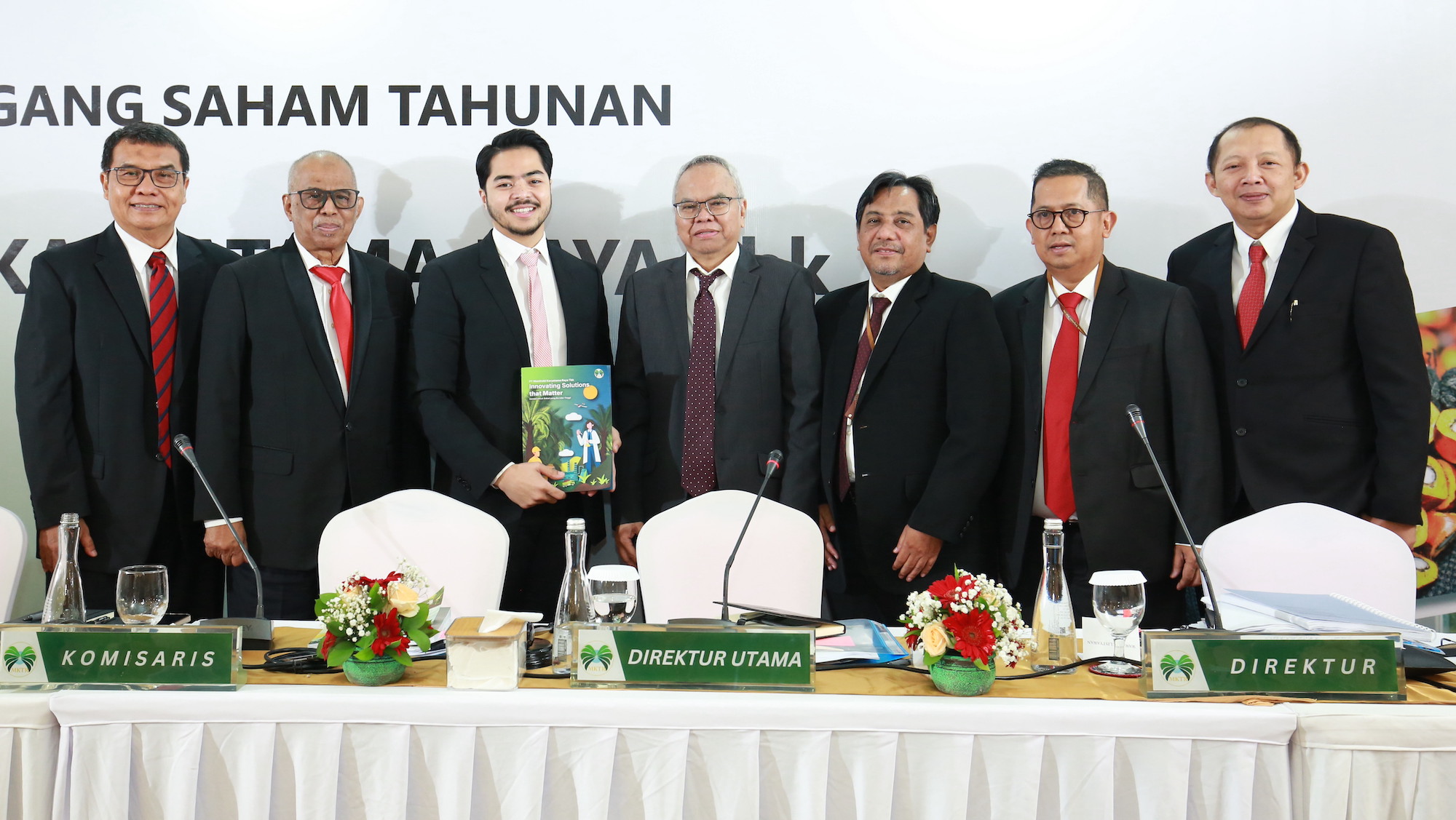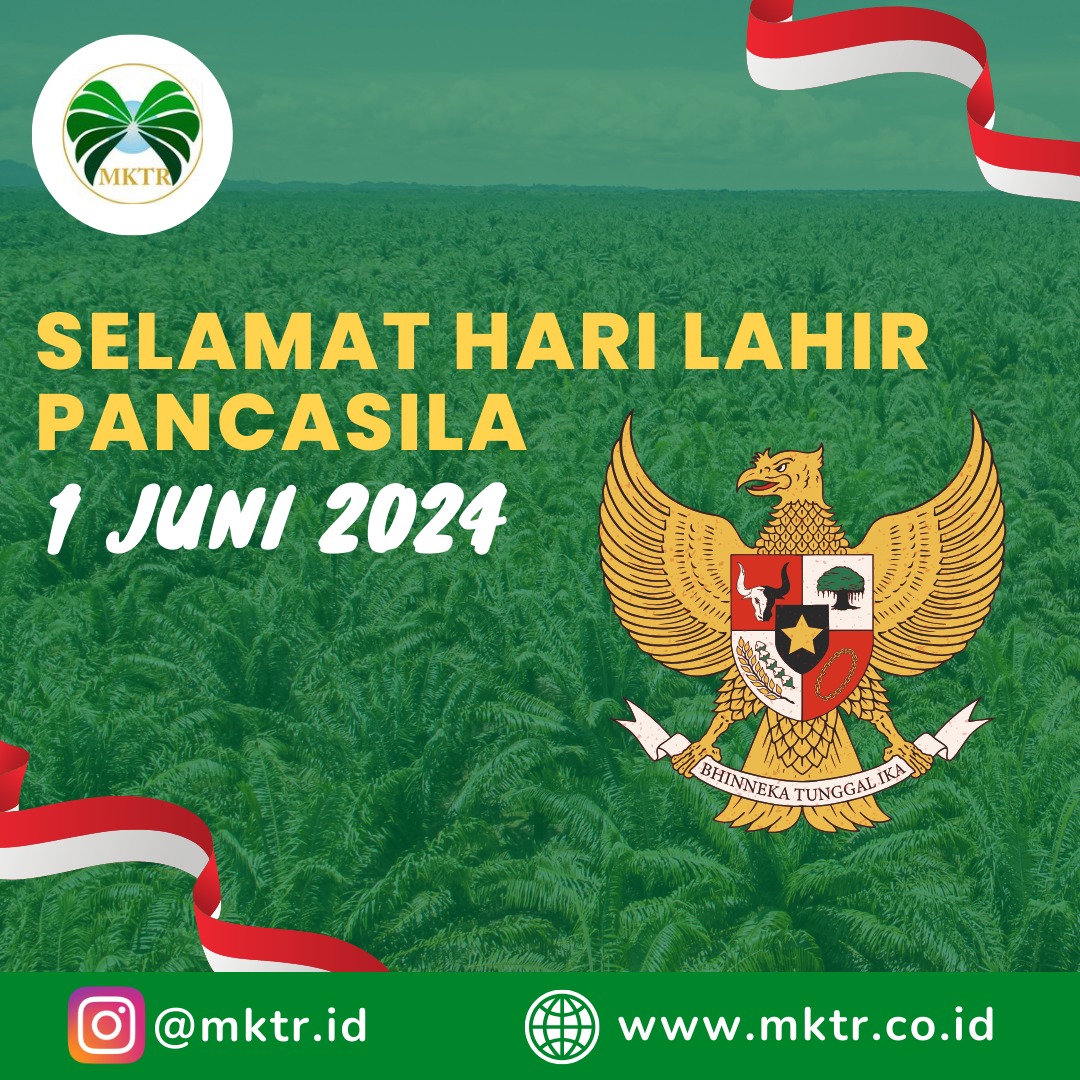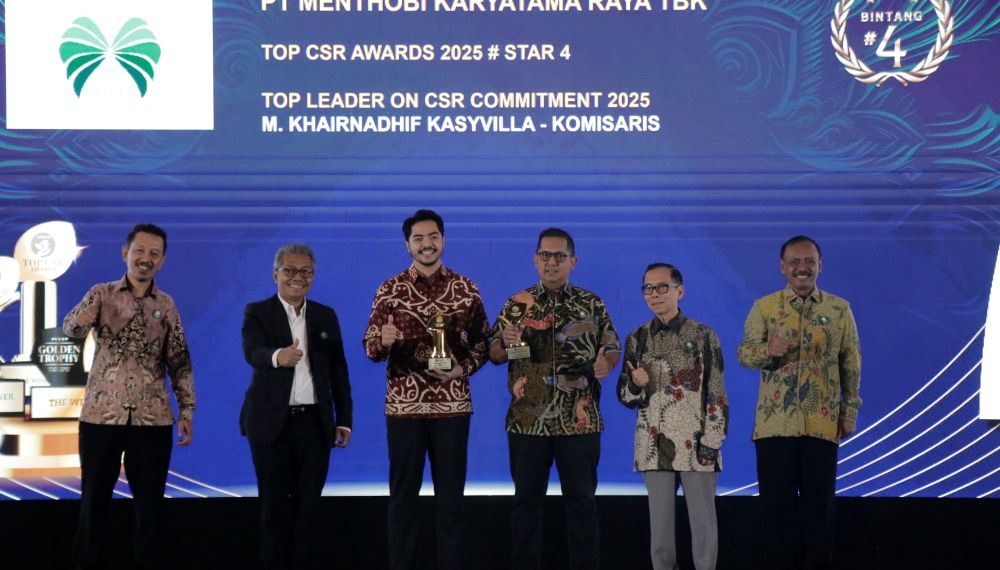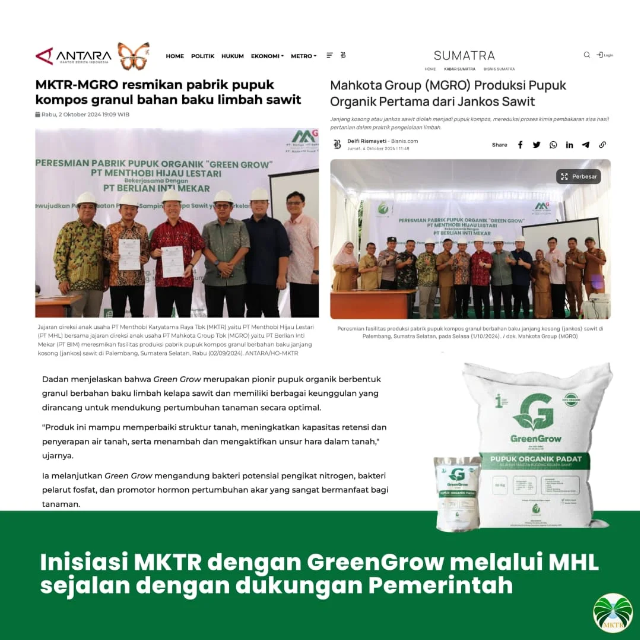
03
Mei
New Standard for Palm Oil Industry, MKTR Creates Biomass Energy Innovation
Menthobi Karyatama Raya (MKTR) Continues to Strengthen Its Role as a Best Practices Agriculture Company Through Biomass EFB Pellet Production Facility
Menthobi Karyatama Raya (MKTR) continues to strengthen its role as a company committed to agricultural best practices and a spirit of sustainability by establishing a Biomass EFB Pellet production facility. This initiative—creating an eco-friendly alternative fuel from empty fruit bunches (EFB) of oil palm—is part of the company’s efforts to realize a green industry and support the energy transition toward Net Zero Emissions.
The Company is currently in the initial stages of constructing its new Biomass EFB Pellet production facility, which is scheduled for commissioning by the end of 2025. This follows the establishment of a mini plant in 2024 with a production capacity of 2 tons per day. Even with limited production last year, the company successfully produced high-quality Biomass EFB Pellets with high calorific value and low potassium and chlorine content, making them safe for industrial fuel use—particularly for coal-fired power plants (PLTU).
The use of EFB Pellets made from palm oil waste, specifically for PLTUs, will increase the proportion of New and Renewable Energy (NRE), supporting the Indonesian state electricity company (PLN)’s target to convert 52 coal-fired power plants to biomass co-firing starting in 2025. MKTR’s EFB Pellets, with low potassium and chlorine content, meet required specifications without expensive pretreatment processes, offering a cost advantage over imported wood pellets.
“The processing of oil palm waste—namely EFB—into EFB Pellets reflects MKTR’s consistent innovation in positively contributing to the industry and promoting Indonesia’s green energy transition,” said Nadhif Kasyvilla, Commissioner of MKTR.
Nadhif added that beyond supporting green industry efforts, this innovation also generates a new revenue stream for MKTR, forming part of its strategic long-term sustainable growth. “We are optimistic that our ability to create added value through eco-friendly product innovation will also bring positive business value to the company,” he added.
Previously, the company successfully launched GreenGrow, an organic fertilizer brand developed by its subsidiary, PT Menthobi Hijau Lestari (MHL). GreenGrow is a pioneer in granular organic fertilizers made from EFB, which is officially registered and licensed for distribution by the government. Most recently, GreenGrow received the Domestic Component Level (TKDN) certificate from the Ministry of Industry.
Beyond innovation, the company is also optimizing its assets to boost business performance in 2025. One key example is the Kernel Crushing Plant (KCP) facility, which is expected to be fully operational this year after its inauguration in the second half of 2024. The KCP facility will process palm kernels into high-value palm kernel oil (PKO). Operating 24 hours a day, the plant is targeted to produce 7,400 tons of Crude Palm Kernel Oil (CPKO) in 2025.
Outside of existing productive areas managed by its subsidiary PT Menthobi Makmur Lestari (MMaL), the company is also exploring new planting areas in 2025 as part of its sustainable plantation practices.
“We have set a series of integrated strategies to strengthen the company’s short-, medium-, and long-term business fundamentals. Our primary focus includes asset optimization, product innovation, and sustainable agribusiness expansion to achieve consistent and competitive business growth,” emphasized Harry M. Nadir, President Director of MKTR.
Short-term strategy for 2025 includes:
- Asset optimization and production increase, particularly maximizing KCP throughput to boost the production of CPKO and palm kernel cake (PKC), thereby enhancing the margin contribution from palm oil derivatives.
- Accelerating GreenGrow organic fertilizer sales, leveraging its TKDN certification to position it as part of Indonesia’s national food security program, expanding market access and reinforcing its role in sustainable agriculture.
- Operational efficiency of company assets, including stronger integration from plantation operations to CPO mill and waste management processes, all of which are being optimized to support improved operating profit margins.
Source : https://www.emitennews.com/news/standar-baru-industri-sawit-mktr-ciptakan-inovasi-energi-biomassa






